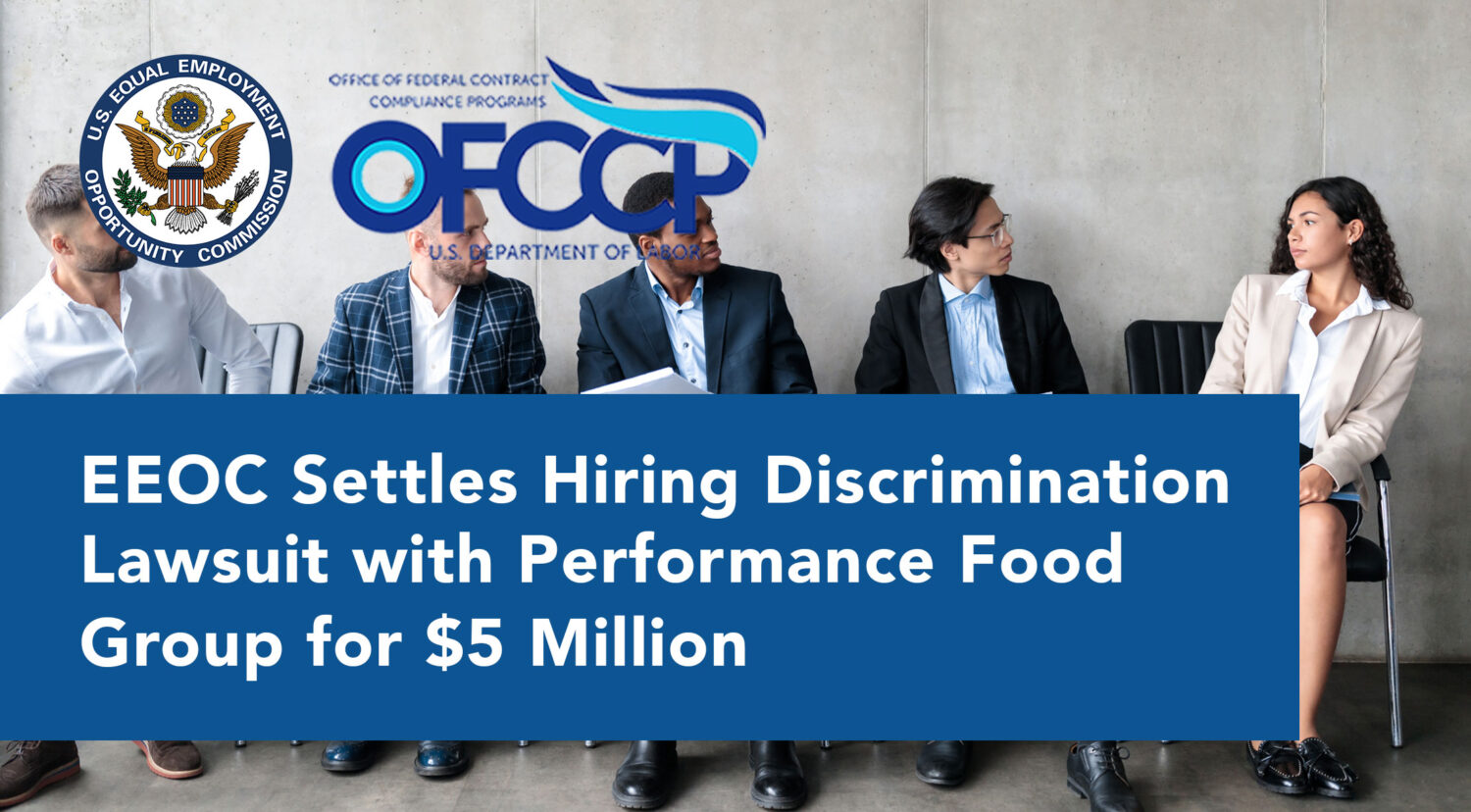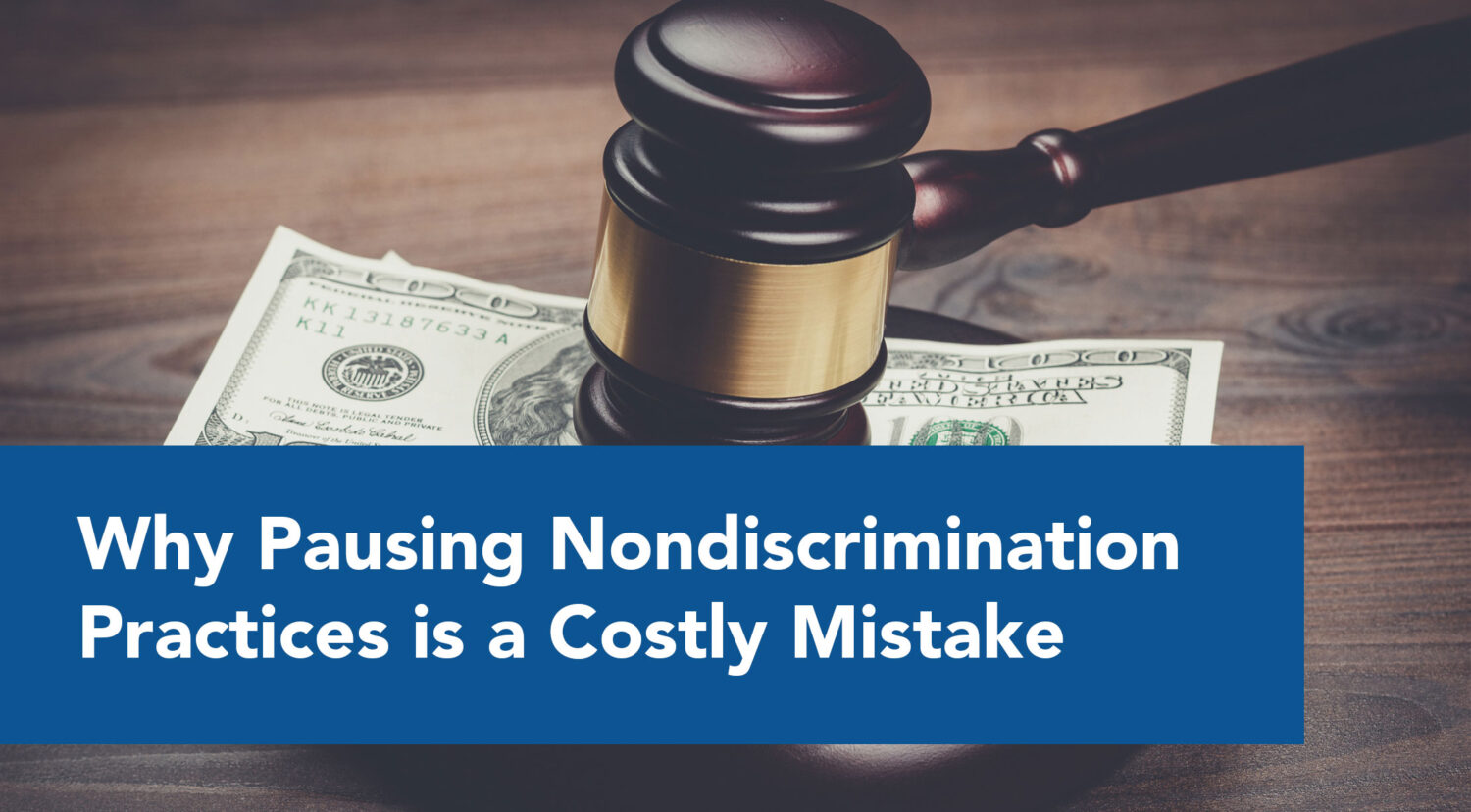

As a federal contractor, navigating the mountain of federal contract compliance requirements can be costly, time-consuming and causing negative publicity. But the Equal Employment Opportunity Commission (EEOC) and Office of Federal Contract Compliance Programs (OFCCP) investigations and audits can be even costlier. And if you end up on the wrong side of one, penalties, remediation efforts, not to mention the expenses of litigation (like producing documents, hiring lawyers, and paying for expert testimony) can quickly add up, eroding the bottom line.
A recent case involving national food marketer and distributor, Performance Food Group, Inc., (PFG) highlights what’s at stake—and why you should take steps now to shore up your hiring practices to comply with EEO standards.
What Happened With Performance Food Group?
The EEOC alleged that since 2004, PFG engaged in an “ongoing pattern or practice” of failing to hire a class of female applicants, despite their qualifications for the position. The positions in question included the nighttime warehouse training supervisor at a Maryland facility, in addition to truck drivers, selectors (of products for orders), forklift operations, and transportation and warehouse supervisors; all but the first were described as requiring an intermediate skill level that could be mastered in a few weeks with only limited training.
During the period in question, local managers and supervisors (who were mostly male) assisted in making hiring decisions. Statistics cited by the EEOC showed that PFG made “zero” offers to females in several positions and that males were pre-selected for many positions. The EEOC also proffered evidence that PFG’s recruiting advertisements and inquiries with staffing agencies were gender stereotyped (i.e., seeking men for equipment positions and women for administrative tasks).
As part of a settlement reached with the EEOC to resolve its allegations against the company, PFG will be required to:
- Pay $5,075,000 in relief to female class members who were not hired or promoted;
- Hire a VP of Diversity to monitor PFG compliance with the court’s consent decree and other EEOC directives;
- Agree to not reemploy former VPs implicated in the complaint;
- Revise management performance evaluations;
- Give hiring preference to qualified female applicants; and
- Institute affirmative recruitment activities for the positions in question.
“Women continue to be excluded from traditionally male-dominated industries and occupations based upon misconceived and outdated notions about their abilities,” says the EEOC in its remarks about the case. The case highlights a continued focus on the elimination of barriers in recruitment and hiring for protected individuals as one of six priorities recently identified by the Commission in its Strategic Enforcement Plan.
Title VII of the Civil Rights of 1964 and Executive Order 11246 prohibit employers, especially, federal contractors and subcontractors from discriminating in hiring or employment decisions on the basis of race, color, religion, sex, sexual orientation, gender identity, or national origin. Federal contractors particularly must also take affirmative action steps to ensure that equal opportunity is provided in all aspects of employment.
How Federal Contractors Can Avoid Liability for EEO Missteps
Here are some steps that contractors can take to avoid ending up in a situation like PFG:
1. Know your EEOC obligations
Review (or engage experts to review) Executive Order 11246 and related regulations to ascertain whether you are in fact a federal contractor who is subject to OFCCP compliance and oversight. Even if you aren’t covered by E.O. 11246, other federal and state anti-discrimination laws that may apply to your business.
2. Make sure you have policies and procedures in place
Make sure you have policies and procedures in place that are reasonably designed to ensure compliance with Executive Order 11246 and related regulations. This includes periodically reviewing and updating them to ensure that they are responsive to any changes in the laws.
3. Conduct periodic internal audits
Conduct periodic internal audits to ensure staff is complying with policies and procedures. EEOC and OFCCP diversity hiring requirements do not require discriminatory intent (although a lack of discriminatory intent is sometimes considered a mitigating factor for penalties). As a result, your business needs to ensure that your recruiters and hiring managers do not treat applicants differently based on race, color, creed, religion, national origin, gender, disability, or any other classes protected by Executive Order 11246 and related regulations.
4. Keep accurate records
Keep accurate records of hiring procedures, decisions, and reasons for any rejections.
5. Keep your counsel in the loop
Keep your counsel in the loop so s/he can help you stay compliant. If you do not have an in-house expert, periodically consult with a knowledgeable and trusted outside expert.
Need help with your AAP compliance efforts? HR Unlimited Inc. can help! We have prepared thousands of AAPs and have been helping federal contractors with a full scope of AAP and EEO compliance services since 2001. Contact us today to learn more about the many benefits of our Affirmative Action Partnership!





